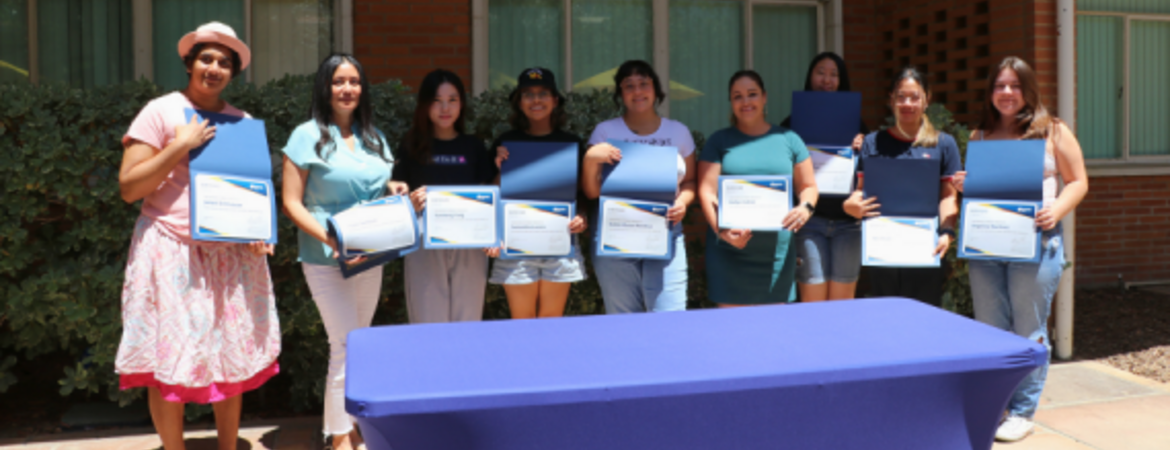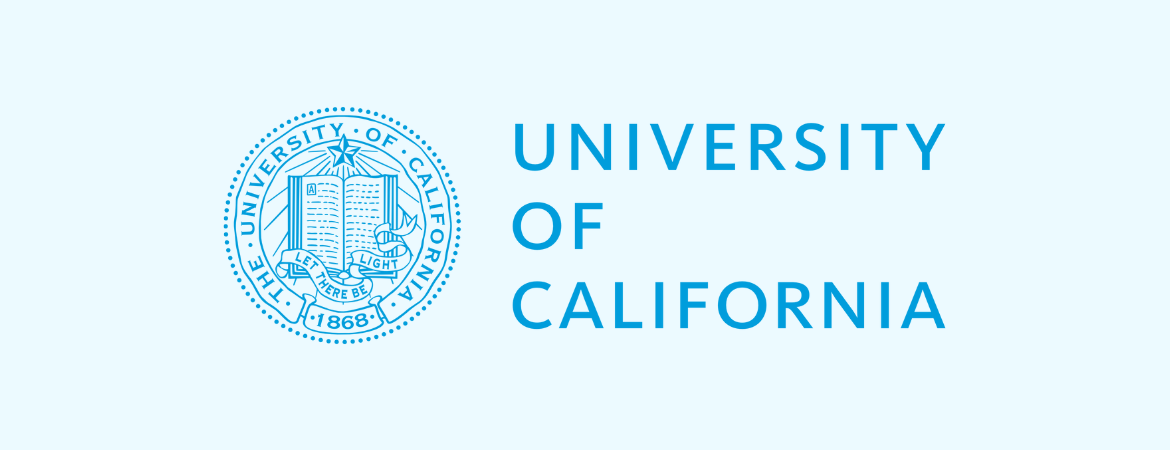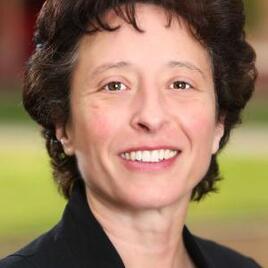Search
Search
Meet Library Student Employees Who Are "Living the Promise": Hayden Jackson
Hayden Jackson is a third-year Political Science major with a minor in Statistics. He’s also a first-generation university student from Ripon, California and the eldest of three children.
“UCR kind of found me, rather than the other way around,” Hayden explained. “When I stepped on campus at UCR, it just felt right. My counselors said that would happen with one college, and UCR was definitely that one for me. I absolutely love this campus, and you couldn’t pay me enough to leave now.”
Hayden first came to the library looking for a second job so that he could stay on campus more to become more involved. He began working as a Library Security Monitor and now works in in Special Collections & University Archives.
“Robin Katz and Zayda Delgado have both been very helpful mentors,” Hayden said. “Robin is always trying to get more people into Special Collections, and Zayda is making a meaningful experience for the patrons, to make it easier to do research. It’s incredibly important work.”
Hayden is also involved in student government with ASUCR and SSFAC (Student Services Fee Advisory Committee), which meets once per quarter with leadership from other UC schools. Hayden said, “I get to see how each UC campus differs.”
Last year, Hayden also joined the UC system-wide Academic Senate Library and Scholarly Communications Committee after a long wait. “They hadn’t had an undergrad rep in four years,” he explained. As the only student voice on this committee, Hayden represents 250,000 other students.
Hayden also did an internship in Sacramento with Senator Richard Roth in summer 2016. “They were missing a legislative aide, so they let me jump into that role. It was eye-opening to see how it all works,” he explained. “A lot more similarities to what I do on campus than I might have thought.”
After UCR, Hayden wants to get his PhD and to go either into higher education or work in the professional field in Sacramento or Washington DC. “I’m interested in doing something that’s bigger than me, something that’s going to outlast me, something that’s going to affect more than just my life,” he says of his long-term vision.
Hayden’s desire to go into academia started when he began working in Special Collections, he said. “A lot of international researchers came here to do original research. Seeing them do that here was really inspiring.”
Being able to work on campus is a big benefit when it comes to class scheduling, Hayden explained. “Life would be very different if I were still working off-campus. My best friends are my co-workers, so that’s been a great support network, as well.”
“I was thinking about how much more I learn outside the classroom through all these experiences,” Hayden concluded. “Not to say anything against the professors, because they’re all great, too. Classes are harder to put on a resume, but no less valuable.”
UCR Library Celebrates Successful Completion of First Summer Digital Scholarship Program

The program provided undergraduate students with new skills and tools they’ll carry with them throughout their academic careers.
As a concept, digital scholarship broadly refers to the use of digital tools or methods for scholarly activities like research, teaching, and publishing. The goal is to leverage digital tools and platforms to enhance the traditional scholarly process.
UCR Library staff led 24 undergraduate students through a six-week digital scholarship program that saw the students explore primary sources from UCR's Special Collections & University Archives. This experience focused on student activism and BIPOC student voices from UCR’s past while also teaching the students valuable digital research skills.
Digital Scholarship Librarian Rachey Starry (who left the UCR Library in August 2023), Digital Initiatives Specialist Krystal Boehlert, Special Collections Public Services, Outreach & Community Engagement Librarian Sandy Enriquez, and Innovative Media Librarian Alvaro Alvarez led the effort to get the Digital Scholarship Program up and running for summer 2023 and are happy with the results.
“It was great to be able to share different skills, ideas, and techniques with the students,” Krystal said. “Being able to do a deep dive in the archives as an undergraduate is valuable — they gained practical research skills they’ll be able to apply in their courses moving forward.”
Students in the free, non-credit bearing program received hands-on training using different kinds of software to create and analyze digitized materials and produced their own findings about the past through workshops, lab sessions, and proposing their own digital exhibit.
The workshops offered covered a range of topics, which included: Encountering Archives: Materiality and Space, DIY (Do-It-Yourself) Imaging in the Archives, Metadata & Data Management for Digitized Archival Materials, OCR (Optical Character Recognition): Turning Digitized Documents into Searchable Texts, and Close and Distant Reading: Quantitative Text Analysis for Archival Materials.
“My favorite was the Imaging workshop,” shared Bobbi Monae Mandour, an English major. “3D imaging and printing isn’t something that I had been exposed to. I’m not a techie, but it was great to learn 3D printing is something I can do here on campus.”
While at first glance it may seem like the program would only be of interest to undergraduate students in the humanities, students studying in other fields were also part of the program and found the experience rewarding.
“I’m a business major, but when I saw words like metadata and 3D/2D imaging, I was interested,” said Yumeng Yang. “I really liked the program and what I learned, plus it was free and it didn’t conflict with any classes.”
Many students are eager to apply the new skills and research methods they learned in the program to their own coursework.
"With the tools I learned in the program, I feel like I can really impress my professors,” said Samantha Lucero, a Sociology/Law and Society major reflecting on her own experience. “Having a better understanding of primary sources, different ways to cite, and research skills are things I’m excited to carry with me. "
This program provided a unique opportunity for undergraduates to access archives, explore digital research tools, and engage in hands-on learning. Students who participated in the program, like Samantha, recommend applying to the program if the UCR Library offers it again next summer.
“You’ll learn really useful skills you can use at UCR,” Samantha said. “And as someone interested in graduate school, I feel like I strengthened skills I’ll need for the future.”
Poster contest for GIS Day 2018
The UCR Library will host a poster contest as part of Geographic Information Systems (GIS) Day 2018 activities at UC Riverside.
The UCR Library presents its GIS Day event series in collaboration with the Center for Geospatial Studies, the School of Public Policy, the Department of Computer Science and Engineering, the Department of Environmental Sciences, the Department of History, GradQuant, and Capital Asset Strategies.
GIS Day, first established in 1999, provides an opportunity for people to learn about geography and the uses of GIS. This year, UCR will observe GIS Day on Thursday, Nov. 15.
Both undergraduate and graduate students are encouraged to enter posters that highlight their use of GIS. All academic disciplines are eligible, including humanities as well as natural and social sciences.
Acceptable formats
Printed posters and a limited number of dynamic displays (such as Story Maps) will be accepted. Students whose abstracts were accepted must submit their posters for printing, or bring their printed poster, to the Map Collection in Orbach Science Library by 5:00 p.m. on Wednesday, Nov. 7. Poster printing fees are waived for the contest.
Collaborations are allowed, as are multiple entries. Please note that for group entries, the first author listed will be eligible for any prizes, should that entry win.
How to enter
Prior to entering, students must submit an abstract before 5:00 p.m. on Thursday, Nov. 1 for review and approval by the GIS Day Planning Committee.
To submit an abstract, please fill out this application form. For questions, you can contact Janet Reyes (janet.reyes@ucr.edu) at the Orbach Science Library’s Map Collection, or call (951) 827-6421.
The committee will notify prospective entrants if their abstract was accepted or declined by Monday, Nov. 5.
Students whose abstracts were accepted must submit their posters by Friday, Nov. 7 to the Map Collection in Orbach Library.
Poster display
Beginning on Tuesday, Nov. 13, the entries will be included in a GIS poster display in the lobby of Tomas Rivera Library.
From 3:00 p.m. to 4:00 p.m. on Thursday, Nov. 15, entrants will have the opportunity to explain their posters and answer questions.
The contest’s first, second, and third-place winners will be announced at 4:00 p.m. on Nov. 15 in Rivera Library, Room 140.
Contest prizes will include a variety of items students will find useful.
Creat'R Lab staff to present at makerspace conference
UCR Library’s Innovative Media Librarian Alvaro Alvarez and Maker Services Coordinator Raymond Gonzalez will present a workshop at the fourth annual MIRA Conference this July.
Interested Highlanders can join them for Creating a Virtual Environment for Makerspaces and Education on Thursday, July 15 from 10:30 - 11:30 a.m. The deadline to register is Monday, July 12.
The Makerspaces for Innovation and Research in Academics (MIRA) Conference brings makers, librarians, educators and practitioners together to share stories, expertise, and their passion for makerspaces and the future of learning. Both Alvarez and Gonzalez have been involved with the MIRA Conference since its 2018 debut, before they joined the UCR Library; in fact, Alvarez thought up the conference name, MIRA. “It brings in the makerspace community to share and to learn new services and technologies,” Gonzales said. “By presenting at MIRA, we get to both share our knowledge and experiences while also learning from others.”
For their presentation, they chose to showcase the virtual reality replica of the Creat’R Lab they built in fall quarter 2020. (For best results, use Mozilla Firefox.) “Virtual Reality is one of the new technologies that is becoming very popular in makerspaces, so we wanted to share our Creat'R Lab virtual environment with our peers to help them get started, if VR is a topic of interest to them,” said Alvarez.
“Due to the pandemic, students and faculty were not able to visit our makerspace in person. This virtual environment allowed the UCR Community, especially those new to the University, to visit and learn about the Creat’R Lab from wherever they are,” Gonzalez added.
This pandemic-driven shift to online-only learning may influence the future of the Creat’R Lab in a positive way. “We will be able to do more online workshops and hybrids so that we can reach a larger audience of students that normally would not be able to attend in person,” Alvarez said. Hosting hybrid workshops allows for more flexibility in scheduling and for UCR makers to review workshop recordings at their leisure, he added.
In addition, needing to think creatively about how to present these topics kept Creat’R Lab staff thinking outside the box. “Creating virtual programming helped us think of more accessible ways of making,” Gonzales explained. “Not everyone has access to equipment like 3D printers and licensed software like Photoshop. During the pandemic, we had workshops on free creative software such as Blender and GIMP, bookbinding techniques using simple tools and materials, painting using three colors of paint, and basic coding and circuit simulation using a free web-based software.”
Originally launched on April 18, 2017, the Creat’R Lab in Orbach Library has served as a gathering place where UCR students and faculty can experiment, design, and create collaboratively, blending their expertise together to forge new paths in learning. It was the first makerspace of its kind at UC Riverside that allowed students and faculty from any department to use it. “We hope that the virtual Creat’R Lab will allow everyone in the UCR Community to familiarize themselves with the makerspace and understand that they are all welcome to use the space and equipment,” Gonzales said.
The Creat’R Lab space in Orbach Library will be closed over the summer, but several online Maker Meetup events will be offered free of charge to UCR students. Ray Gonzalez and Alvaro Alvarez are currently planning for the re-opening of Creat’R Lab this fall quarter. Please check the library website for the latest information on library re-opening plans.
How Do I Find - Film & Video
Film and video are great resources for a variety of disciplines and are available for anyone to use.
Finding Film & Video
Use UC Library Search to find media held at UCR Library. Film and video are generally located in the Tomás Rivera Library.
Digital Initiatives Specialist
We are delighted to announce that Krystal Boehlert has joined the UCR Library as our Digital Initiatives Specialist, effective November 18, 2019.
Krystal will be a new member of the Digital Library Division, and her office will be located on the first floor of Orbach Library, reporting to Kevin Comerford, the Associate University Librarian for the Digital Library.
Krystal earned her BFA in Visual Media from Rochester Institute of Technology, her MA from the Art Center College of Design, and her MLS in Library and Information Science from San Jose State University.
Most recently, Krystal served as the Visual Resource Specialist for the UC Riverside department of Art and Art History. Prior to working for UCR, Krystal also worked for the J. Paul Getty Museum, Albright Knox Gallery and Art Collection Management, Inc. She brings a variety of experience managing digital projects.
Please join us in welcoming Krystal to the library!
UC Libraries Transition Regional Facilities to Systemwide Service Centers

The University of California Libraries have restructured their regional library facilities into fully systemwide service centers.
The Northern Regional Library Facility (NRLF) and Southern Regional Library Facility (SRLF) are now known as Systemwide Library Facility-North (SLF-North) and Systemwide Library Facility-South (SLF-South). This transition aims to enhance strategic planning, budget management, and service provision across the UC system. Both facilities will continue to be governed by the Systemwide Library Facilities Board.
A new SLF director, based at UC Berkeley, will oversee both facilities, promoting greater alignment in practices and operations.
For more details, visit the Systemwide Library Facilities FAQs.
Tiffany Moxham
As Interim University Librarian until the permanent University Librarian is hired, Tiffany has strategic responsibility for advancing library programs and services to support the University's research, education, and service mission. She holds an MLIS from the University of South Florida and an MBA from the University of Cumbria.
In her permanent role as Deputy University Librarian and AUL for Content and Discovery at the UCR Library, she collaboratively provides vision, strategic direction, leadership and management for the Library, overseeing Library Human Resources and the Content and Discovery Division. The division encompasses those departments involved in the research collections' lifecycle, including purchasing, access, discovery, and information literacy. The departments within Content and Discovery include Collection Strategies, Special Collections & University Archives, Metadata and Technical Services, Access Services, and Teaching and Learning. Tiffany joined the library in 2014 as the Coordinator of Medical Library Programs, later joining administration as AUL in 2018.
Interim University Librarian

Share your feedback on the UCR Library
This year, the Provost's office will coordinate several external reviews of important programs and units at UC Riverside. The first of these is one that is core to our mission as a research university: the UCR Library.
As part of the external review, the Provost's Office has worked with the library to develop a survey to solicit your feedback on specific library services that support faculty, students and staff.
We hope you can find 5-10 minutes to take the survey before Monday October 28. Your responses are anonymous but will be shared with the external review team and with the library’s leadership team.
The link to the survey is mobile-friendly.
Thanks for sharing your time and feedback, and for helping us to offer you the best possible library services!